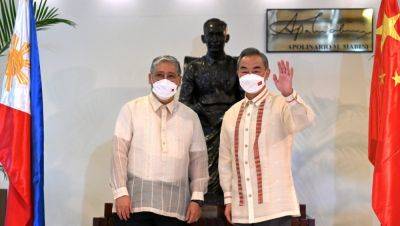Why the Philippines Struggles to Pass a Law Against LGBT Discrimination
At first glance, the deeply Catholic Philippines can seem surprisingly LGBT-friendly. In a nation of 110 million people, more than 110,000 showed up last week to Quezon City’s Pride festival, making it by far the largest LGBT congregation in Southeast Asia. The country also ranks highest in the region for LGBT social acceptance—according to a 2021 global index—and it’s made significant strides over the years toward greater inclusivity and equality.
And yet, for more than two decades, a bill that would criminalize discrimination based on one’s sexual orientation, gender identity, gender expression, or sex characteristics (SOGIESC) has languished in the Philippines’ Congress. Year after year, it’s practically become an annual tradition for legislation on the matter to be reintroduced and rejected, leaving LGBT people in many parts of the country with no legal recourse when they’re discriminated against.
Read more: A Year After Singapore Decriminalized Gay Sex, Its LGBT Community Turns Attention to Family
While many cities across the country have already instituted local ordinances to make SOGIESC-based discrimination illegal, Irish Inoceto, a Filipino LGBT activist and former employee of the Philippine Supreme Court, tells TIME that they have “no teeth at all” and that she has seen firsthand just how overdue and glaringly necessary such a nationwide law is.
Last October, Inoceto received a message on Facebook from an 11th grader just weeks before students were to be required back in classrooms after two years of COVID-prompted remote learning. The student, a transgender woman in Iloilo City, some 280 miles southeast of Manila, had met Inoceto through one of the routine LGBT rights seminars Inoceto facilitated across Iloilo City, where she used to be based. The student, who had attended some classes in person during a hybrid-remote period, told Inoceto that the school principal summoned her personally to say that men should not wear bras; she also said a school security officer policed her uniform. Meanwhile, another student at the same school who also identifies as a transgender woman similarly reached out to Inoceto to tell her that the principal rounded up all







